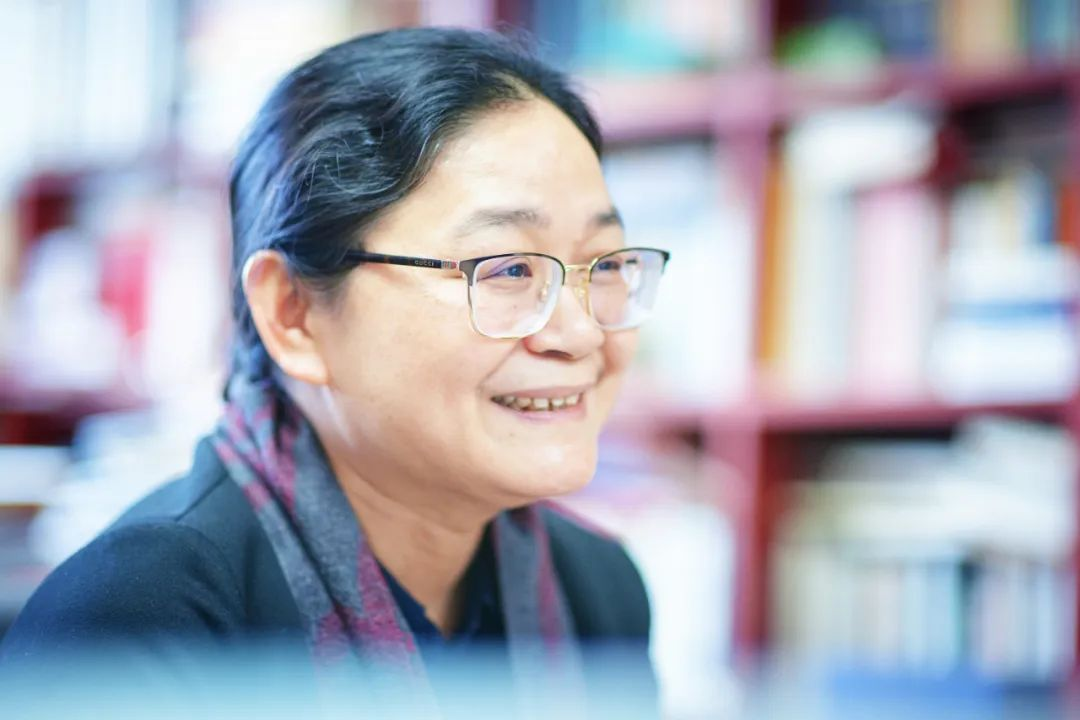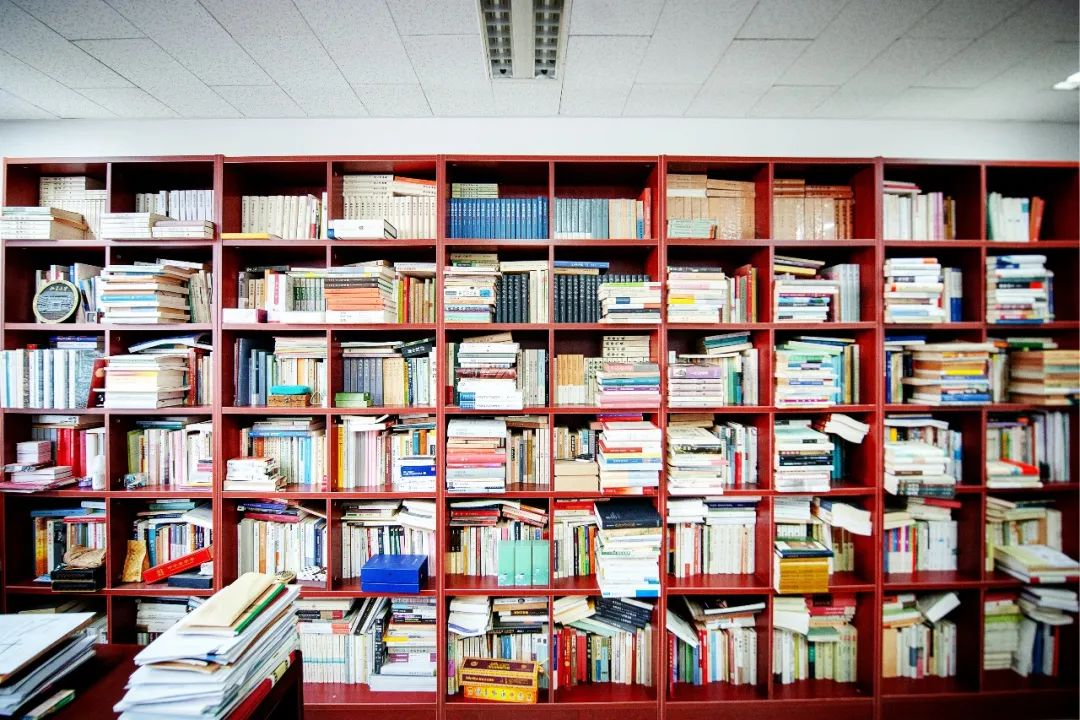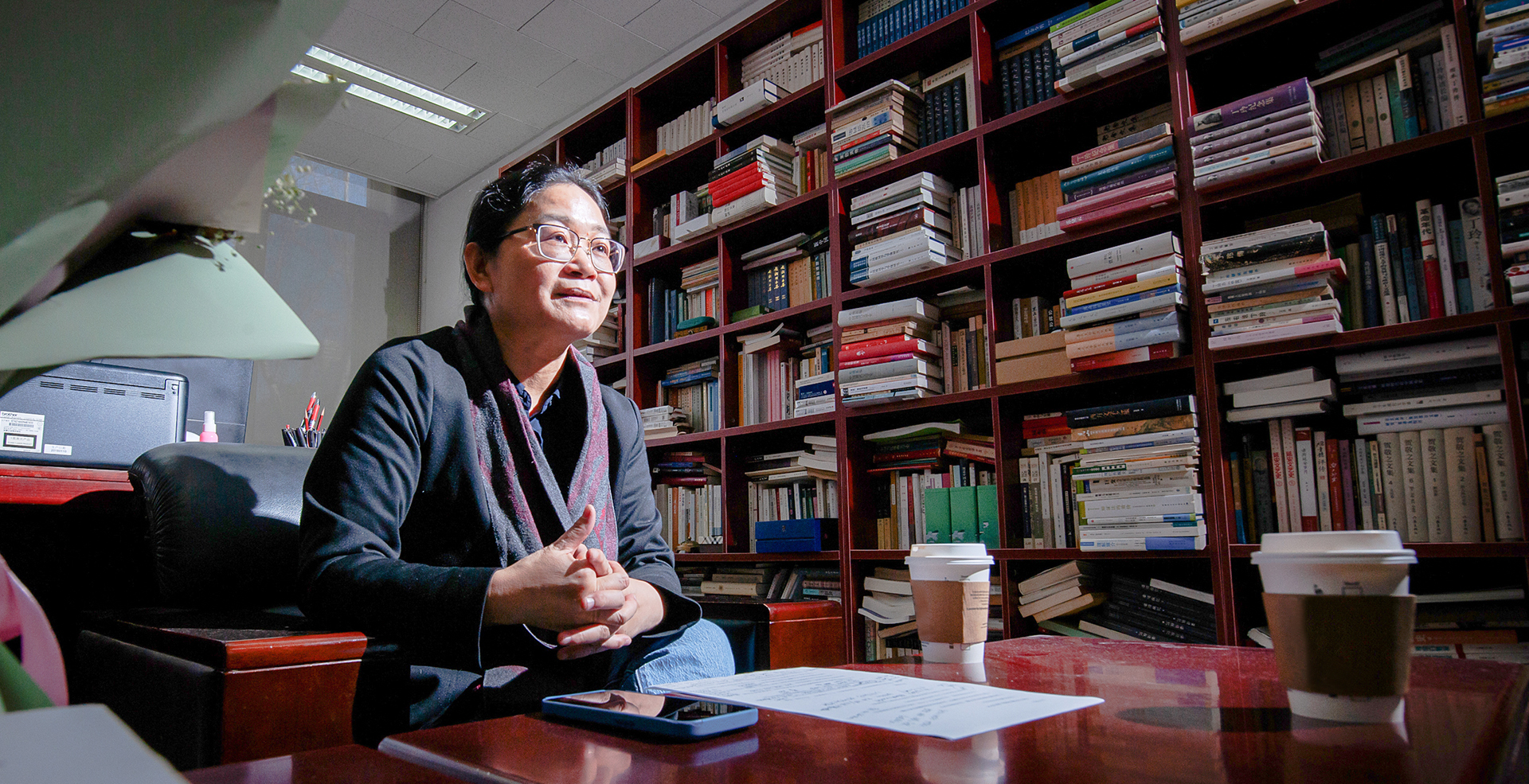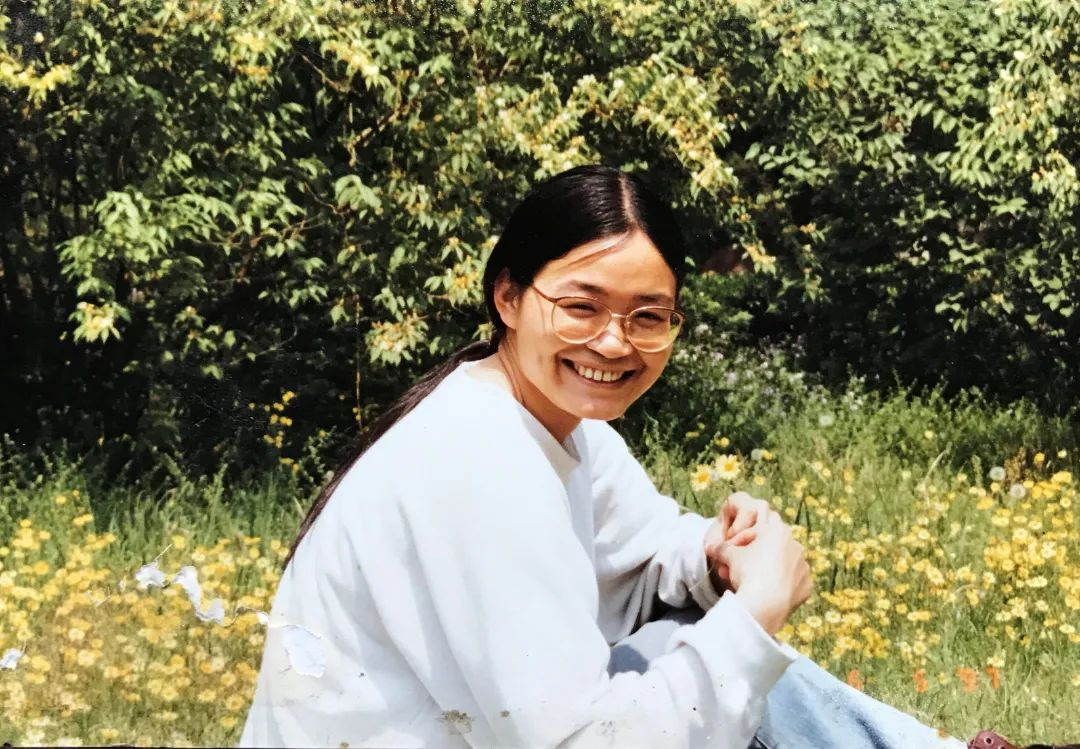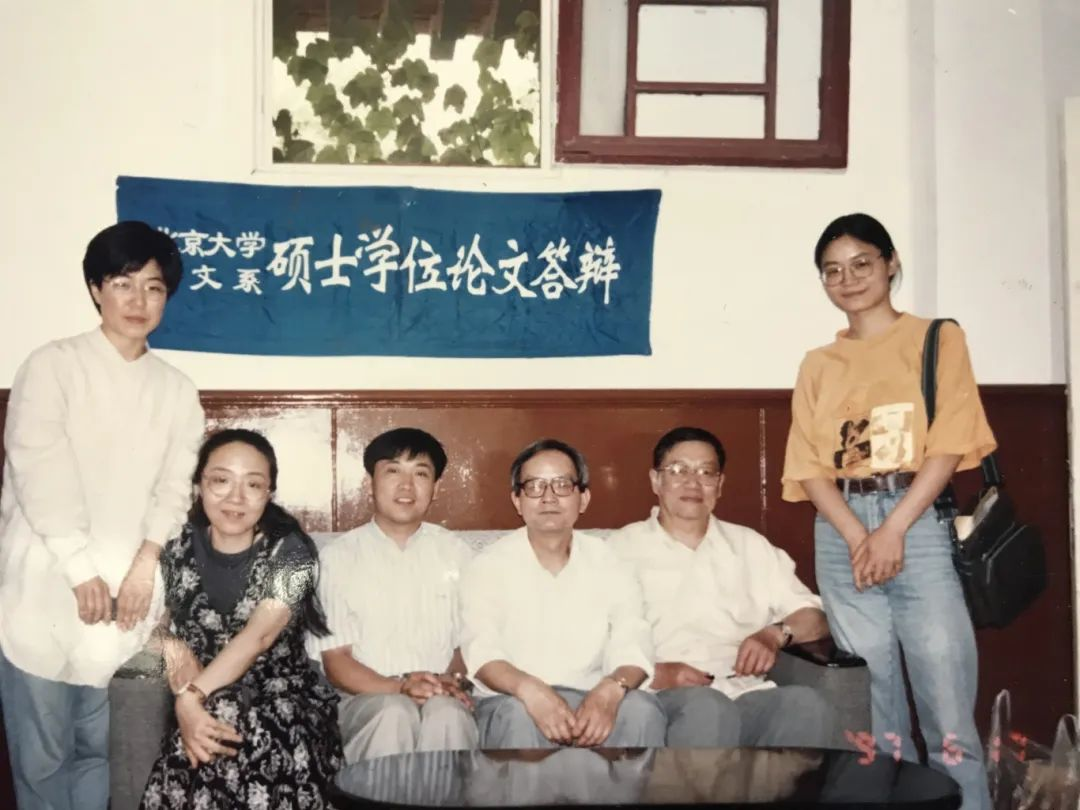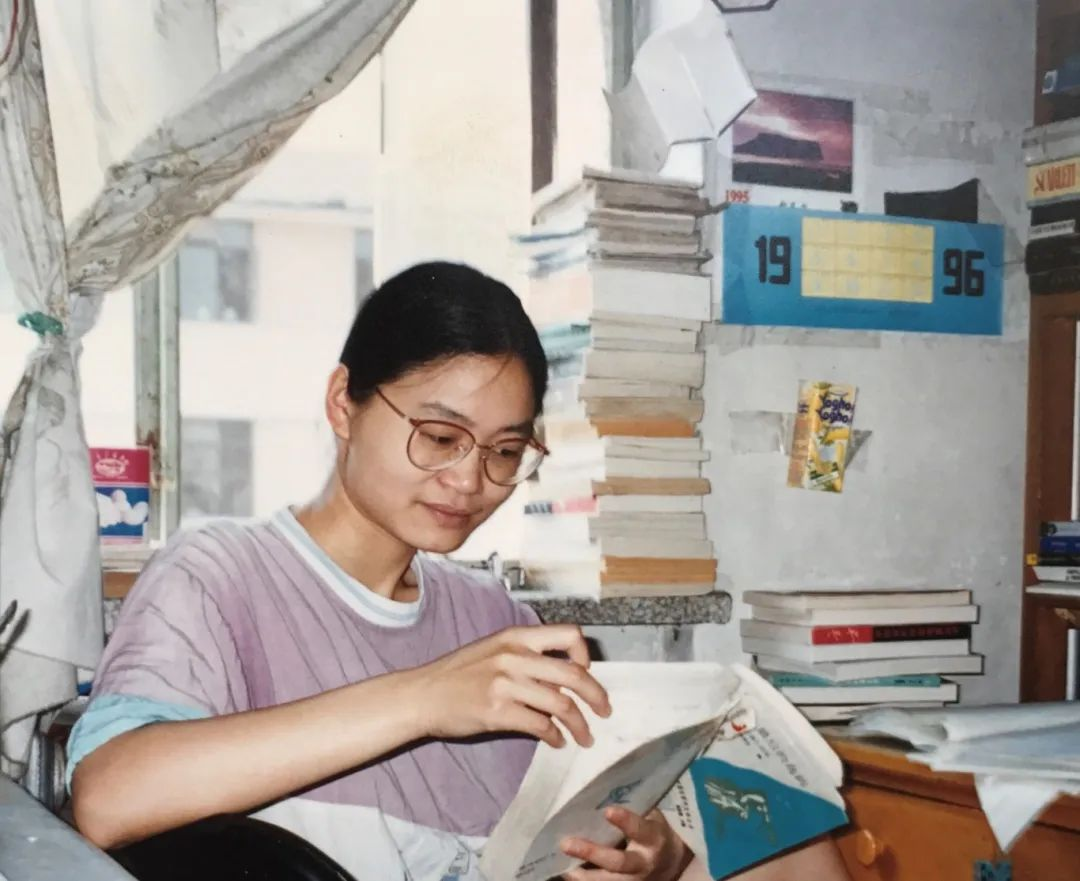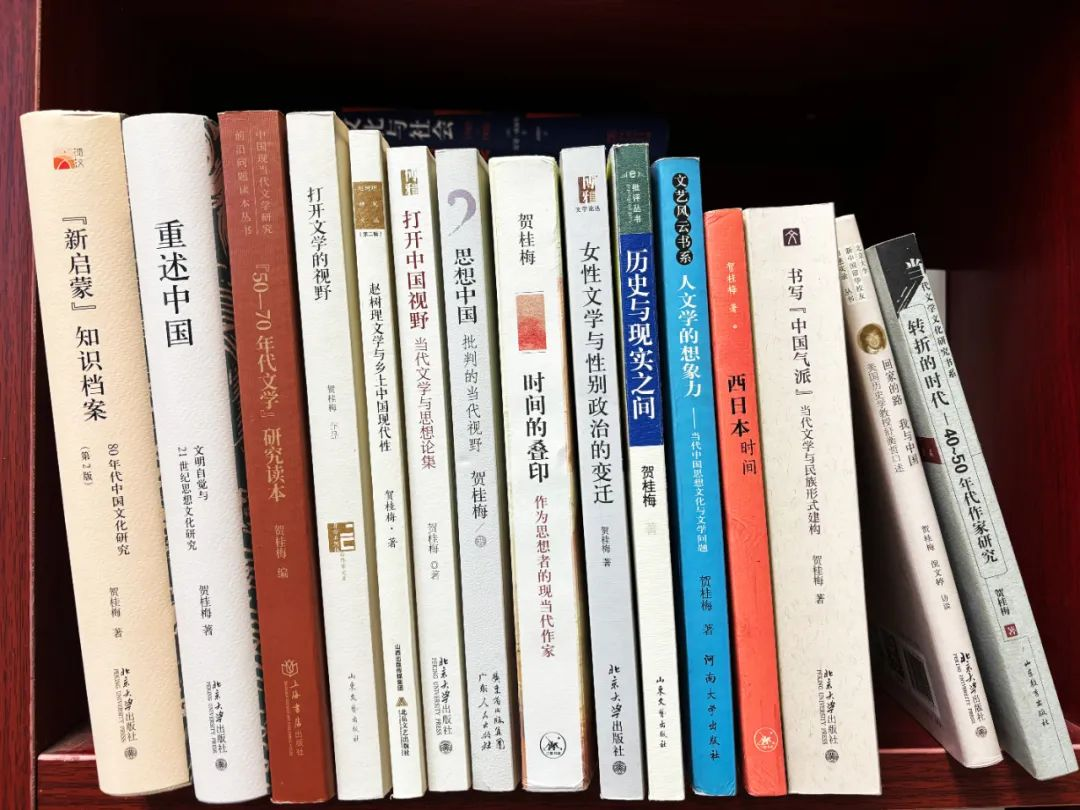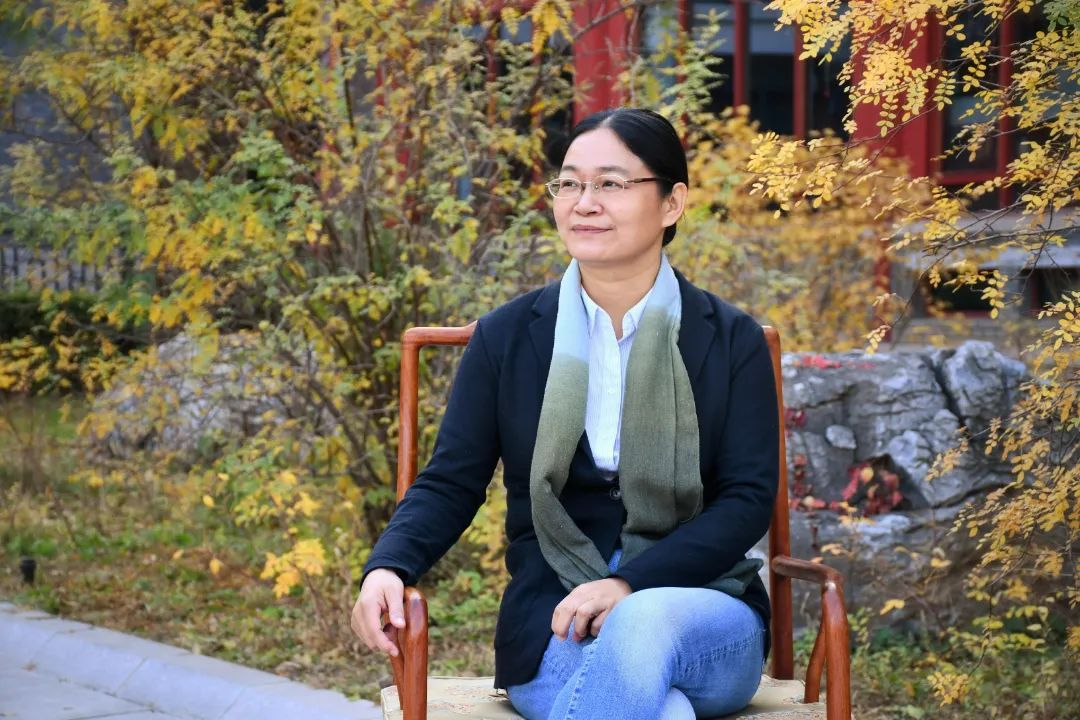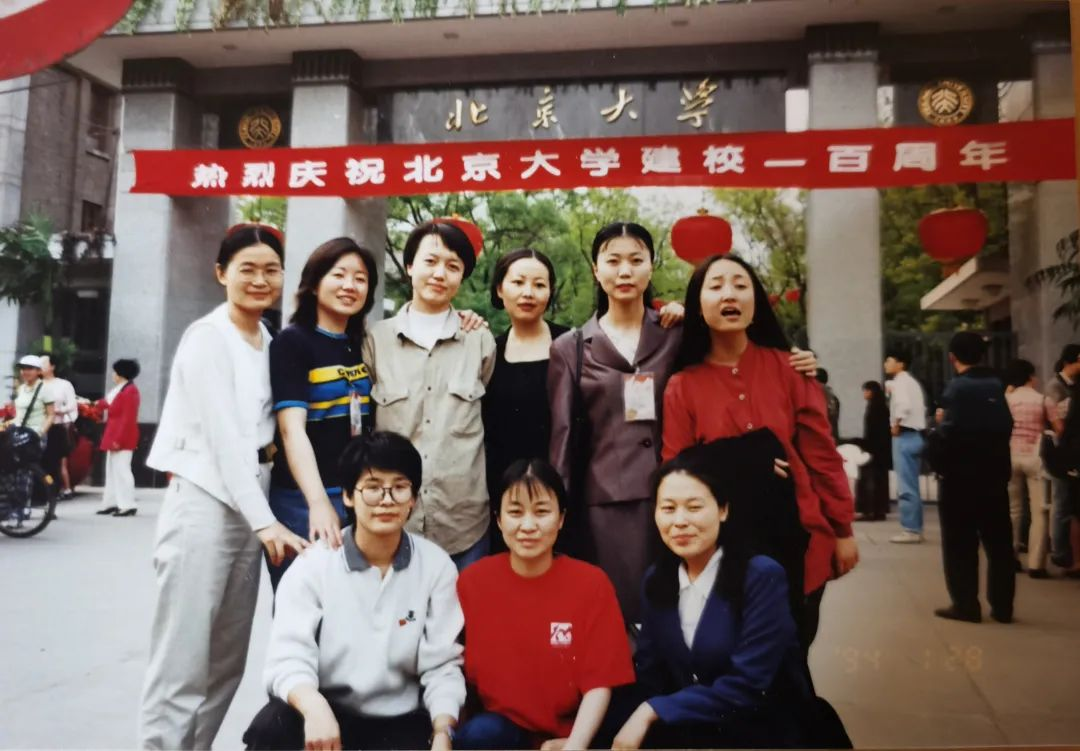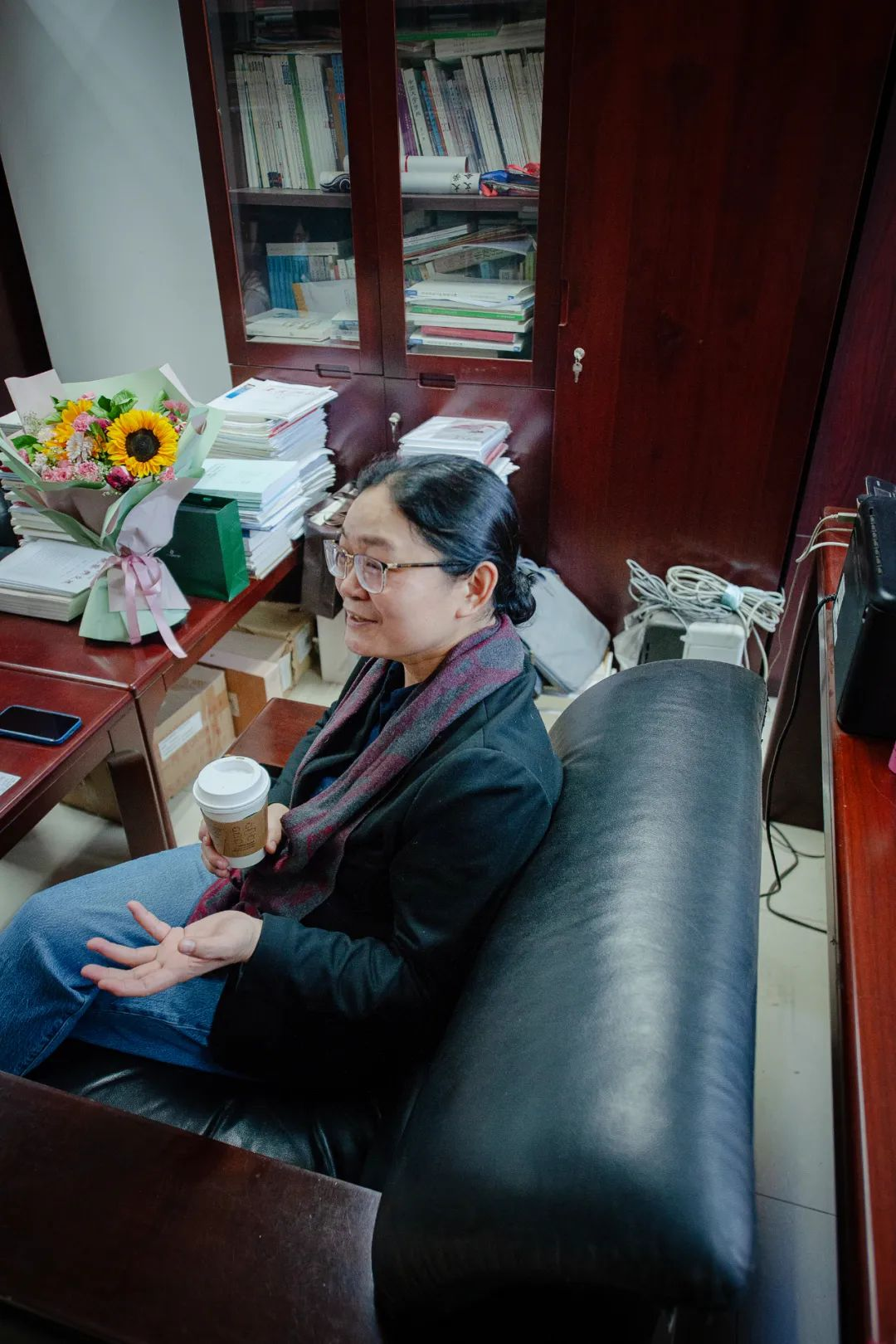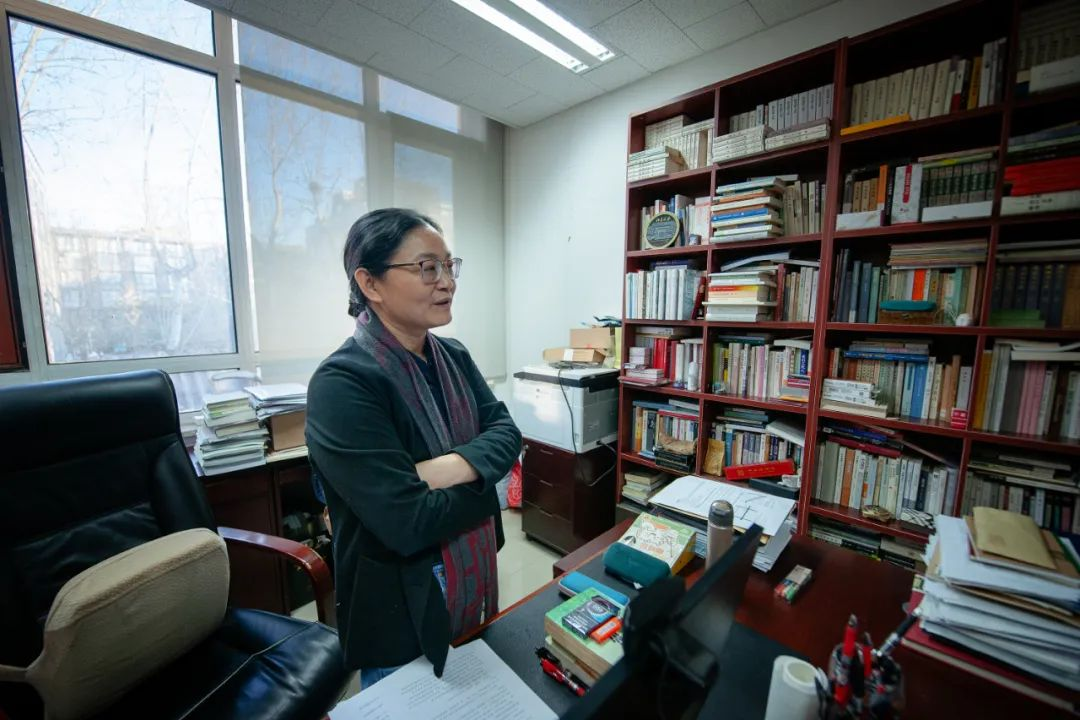Peking University, March 11, 2024: Prof. He Guimei stands as an acclaimed bibliophile even within Peking University's Department of Chinese Language and Literature, where she has dedicated 34 years to her academic pursuits. Her office serves not only as a workspace but also as a sanctuary of knowledge, adorned with towering bookshelves housing around 4,000 volumes she frequently consults. However, this vast collection is only a fraction of her extensive personal library. Her home is occupied by "around 50,000 books," she recently discloses.
For literature enthusiasts, He Guimei's office feels like a treasure trove. From contemporary classics like Builders of a New Life to the complete Wuxia works of Jin Yong (Louis Cha Leung-yung), from the collected works of Ding Ling and Zhao Shuli to historical fiction like Empresses in the Palace and Legend of Zhen Huan, one can catch glimpses of both historical landscapes and literary trends.
"Reading constitutes around 60-70% of a scholar's intellectual development," He Guimei once remarked. "The rest comes from personal experiences and observations. I am eager to explore various forms of culture present in our daily lives, observe people around us, study social psychology, and even watch popular TV dramas, movies, and web series. Broadly speaking, these activities are also a form of reading."
He advocates for the "imaginative power of the humanities," encouraging scholars to delve into personal and global issues that reflect broader societal trends and to reinvigorate the power of literature.
An involuntary choice
For He Guimei, literature is a profound experience that seems to overlap with her personal life, and embarking on the path of literary research seems to be an “involuntary choice." In 1990, He enrolled at Peking University's Department of Chinese Language and Literature, where she immersed herself in the scenic beauty and ambiance of Yan Yuan while spending considerable time in the library, experiencing the tranquility and purity that reading had to offer. For her, the nourishment from Peking University's academic atmosphere was invaluable.
He Guimei in Yannan Garden at Peking University in the 1990s
The springtime of the 1990s marked a crucial phase in He's academic journey, where she transitioned from a mere literature enthusiast to a dedicated literary researcher. To truly comprehend the core ideas of important theoretical works, He devised a method she called "diligent efforts." After skimming through a book, she transcribed its table of contents into a computer document. Then, she would copy down the most insightful chapters and rewrite certain sections in her own words. Finally, she would jot down the most fruitful insights below each chapter's heading. She humbly notes that "All intelligence is supported by diligence," assuring that the varying levels of comprehension among students are a result of the amount of effort they put in.
He Guimei’s mentors Prof. Hong Zicheng and Prof. Dai Jinhua were the two most influential teachers in her literary pursuits. Hong's emphasis on historical materials and Dai's sharp critical perspective and infectious expression helped her develop an academic style deeply intertwined with her personal life experiences. As a result, her works reflect a blend of scholarly depth, spiritual aspirations, and emotional experiences. They embody both a profound understanding of materials and historical trends but also demonstrate acute problem awareness and real-world concerns.
He Guimei’s master's thesis defense in 1997 (Seen from right: He Guimei, Zhao Zumou, Hong Zicheng, Cao Wenxuan, Dai Jinhua, Park Jung-hee.)
Research rising from life experiences
He Guimei refers to the 1990s as her "academic origin." During this intellectually vibrant period, several renowned scholars from the Department of Chinese Language and Literature pioneered new academic research paths distinct from those of the 1980s. For instance, scholars like Dai Jinhua delved into feminism and cultural studies; Qian Liqun explored intellectual history; Hong Zicheng focused on literary history; and Chen Pingyuan reviewed academic history. These groundbreaking studies marked a transition from the traditional literary criticism of previous decades, influencing young researchers like He Guimei.
Feeling the motivation to engage in academic research, He recognized scholarly inquiry as a means of understanding oneself, understanding China, and comprehending the world we inhabit while actively participating in reality. She considers this realization the greatest gift bestowed upon her by the 1990s.
He Guimei in her dormitory in the 1990s
In 1999, while still pursuing her doctoral studies, He completed her first book titled The Growth and Crisis of Criticism, which closely examined and researched literary criticism in the 1990s. Simultaneously, she began preparing her doctoral dissertation titled "Literature of the 1980s and the May Fourth Tradition." Building upon her doctoral thesis, after nearly a decade of contemplation and refinement, she published The "New Enlightenment" Knowledge Archive in 2010, delving deeper into cultural studies. During this period, she also authored The Turning Era, exploring the literary transformation of the 1940s-50s, thereby contemplating how the literary system, trending thoughts, and contemporary literary norms were established in China.
Following the completion of The "New Enlightenment" Knowledge Archive, He Guimei shifted her research focus from the 1980s to the 1950s-70s. In 2020, she published Writing "Chinese Style", discussing the construction of national forms and Chinese identity from a global perspective. In 2023, her latest work, Retelling China, was released, focusing on intellectual and cultural studies in the 21st century.
He Guimei's publications
He Guimei's persistence towards gender studies is closely related to her personal experiences. In the 1990s, while pursuing her master's degree, she participated in the wave of "women's literature." “What strikes me the most is how academia allows us to transform life experiences into a driving force for progress. It enables us to have sympathy, empathy, and concern for broader societal circumstances.” He Guimei believes that gender issues are not simply the concerns of women themselves, they should also be discussed within broader research perspectives and within larger social structures. This, she argues, can promote the formation of comprehensive social consensus, enable effective judgment, and generate demands and forces for changes.
He Guimei poses for photos in front of the Chinese Department building in autumn 2020
Calm, amiable, and effortlessly approachable - these are the impressions most commonly held by students at the Department of Chinese Language and Literature regarding He Guimei today. Nurtured and enriched by her studies in literature, she maintains a serene and cheerful demeanor in her daily life. Moreover, she possesses wisdom and rationality when confronted with the grand questions of her era and society. Beneath her gentle smile and wise words lies a rich inner world nurtured by over three decades of intertwining academic pursuits and life experiences.
Understanding contemporary China through the lens of literature
Exploring literature within the context of contemporary China is a research approach that Prof. He has long adhered to. In the 1990s, the fields of literary creation and criticism were highly active, and He was frequently invited to publish critical articles in academic journals. However, she gradually began to reflect on the limitations of solely conducting criticism within the realm of literature.
Influenced by the intellectual and academic atmosphere of the 1990s, He was deemed that literary research could transcend existing professional boundaries and discuss issues in China from a broader perspective. ".... I was not content with confining myself to a single perspective. In the absence of a clear understanding of the overall historical structure, my criticism and research felt almost like speaking to myself." Fueled by such frustrations, she began to contemplate how to engage with societal realities through academic and intellectual means and how to incorporate her personal life experiences and memories into her research.
He Guimei (back row, leftmost) with her classmates at the school gate during the centennial celebration of Peking University in 1998
As a scholar who has grown up in professional academic training, He has never considered herself a pure "literary" scholar. She has always wanted to discuss literary issues alongside philosophical, popular culture, theoretical, and even social science issues in the same field. She hopes to understand contemporary China through a broader lens and attempts to discuss Chinese issues from an interdisciplinary viewpoint. Her works demonstrate a proficient application of Western academic theories such as dialectics, classical political philosophy, and critical social sciences, as well as references to studies of Chinese civilization history and classics, opening up a new and broad perspective for the study of contemporary literature and contemporary China.
Inspired by the concept of "sociological imagination" proposed by sociologist C. Wright Mills, He put forward the important concept of "humanistic imagination." She believes that "humanistic imagination" means both "going out," stepping out of specialized literary research and engaging in dialogue with social research and political economics research, and "re-activation," placing literary research in the overall perspective of social science and humanities research, discussing its potential intellectual power and ability to engage with reality. "This not only breaks the simple opposition between the individual and society but also breaks down the barriers between disciplines and specialties." Prof. He explains.
He Guimei in her office
He Guimei has conducted discussion courses on "21st Century Chinese Cultural Hotspots" for graduate students once every one or two years since 2015, exploring literary works, TV dramas, academic works, etc., that emerged in the previous year. Besides her teaching work, she also enjoys watching movies and TV series. While relaxing, she tracks the latest popular culture trends, seeking new directions worth studying. She has conducted in-depth research and provided unique insights into films such as "The Awakening Age" and "Human World," as well as following popular web series such as "Imperfect Victims" and "Ning'an is Like a Dream."
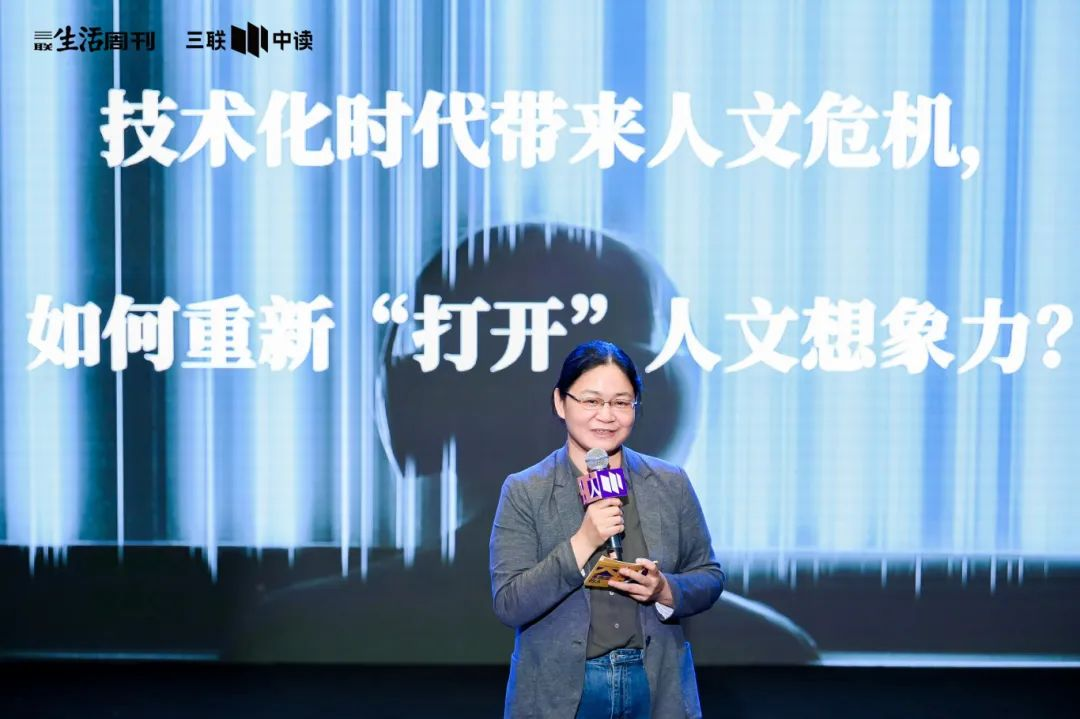
Since 2021, He Guimei has been hosting a course titled "Approaches to Understanding China," which is aimed at undergraduate students across the University. This course takes the form of a series of lectures, with each session featuring a prominent scholar discussing specific topics related to Chinese studies from an interdisciplinary and cross-disciplinary perspective.
Topics such as "Contemporary Films: Imagining China and the Self," "World Literature in Contemporary Chinese Literature," "Between Urban and Rural, Between Home and Country," and "The Road of Books and Cross-Cultural Exchange" have been consistently providing students with a rich feast of knowledge across various fields of humanities and social sciences.
Literature has been He Guimei’s close companion since her youth and has remained her lifelong passion and career. While her gaze spans vast horizons, her foundation has never strayed from literature. To understand contemporary China and address issues pertaining to the nation, "literature is always an irreplaceable medium," the professor says.
*This story is featured in PKU News' "A Scholar's Study" series. More from the series:
A Scholar's Study | Fan Ye's bonanza of books
The joy of being a “professional reader” – A glimpse into Profs Chen Pingyuan and Xia Xiaohong’s study
Written by: Niki Qiu
Edited by: Dennis Meng
Photos by: Lu Chen; courtesy of the interviewee
Source: PKU WeChat
